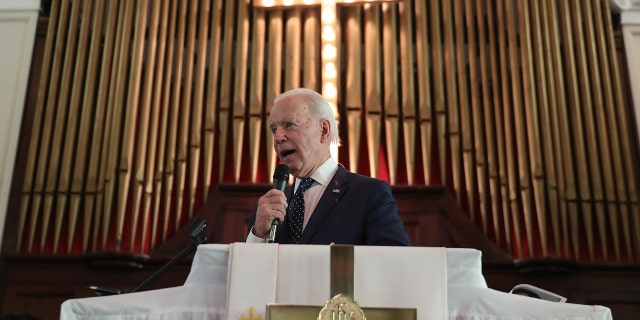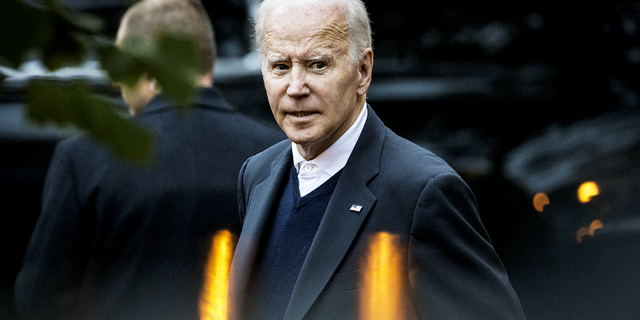The share of the American electorate that is non-religious has continued to grow over the last decade, with a large majority of those voters preferring Democratic candidates.
"When you consider how involved they are in political activity, you realize how important they are at the ballot box," Ryan Burge, a professor of political science at Eastern Illinois University, told the Seattle Times of non-religious voters in a report Saturday.
Burge's comments come as the share of the electorate that is unaffiliated with any religion, often coined as "nones," has continued to grow over the last decade, accounting for 22% of voters in the 2022 election. According to data reviewed by The Seattle Times, those voters overwhelmingly prefer Democratic candidates, voting for the party over Republican House candidates 65% to 31% in the 2022 midterm elections. The voters showed a similar preference during the 2020 election, with 72% voting for President Biden.
A 2021 Pew Research Center report found that 29% of Americans identify as atheist, agnostic or "nothing in particular," a number that has risen 10% over the last decade. A Harvard study found that atheists and agnostics, a subset of the "nones," are more likely to make a campaign donation, attend a political meeting or join a protest, a high level of political engagement that makes them a powerful voice in the electorate.
DEMOCRATIC PARTY EMBRACES NONRELIGIOUS VOTERS, CRITICIZES 'RELIGIOUS LIBERTY' IN NEW RESOLUTION

President Joe Biden (Joe Raedle/Getty Images)
Those not affiliated with any religion were able to match the voter participation of Catholics in 2022, with both groups accounting for 22% of the electorate. But they still lag far behind Protestants and other Christians, who made up 43% of the electorate. Another 30% of voters identified as born again or evangelical Christians.
But while Democratic issues and candidates largely benefited from non-religious voters, their growing influence within the party could threaten to push away voting demographics who have traditionally sided with Democrats.
Black Protestants have traditionally been one of the Democrats' largest and most engaged demographics. Still, some of those voters took issue with the Democratic National Committee passing a resolution praising the religiously unaffiliated in 2019.
Meanwhile, the party also draws heavily from liberal Jews and Catholics of color, setting the stage for more conflicts as the nones continue to grow their influence.

President Joe Biden leaves Holy Trinity Catholic Church before attending the Phoenix Awards Dinner in Washington, D.C. (Samuel Corum/Bloomberg via Getty Images)
CLICK HERE TO GET THE FOX NEWS APP
"I think the Democrats have the biggest problem in the world because they have to keep atheists and Black Protestants happy at the same time," Burge said.


